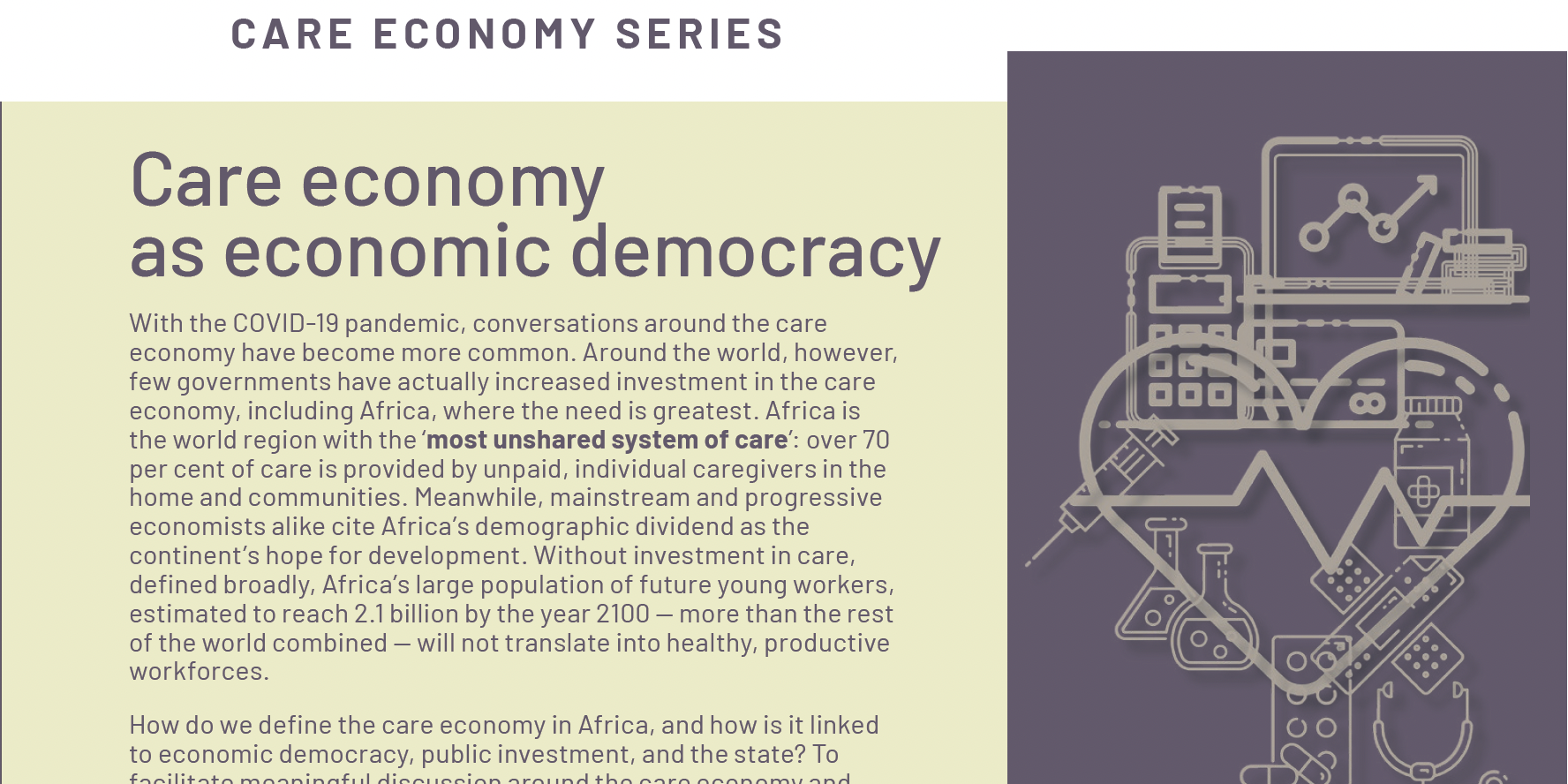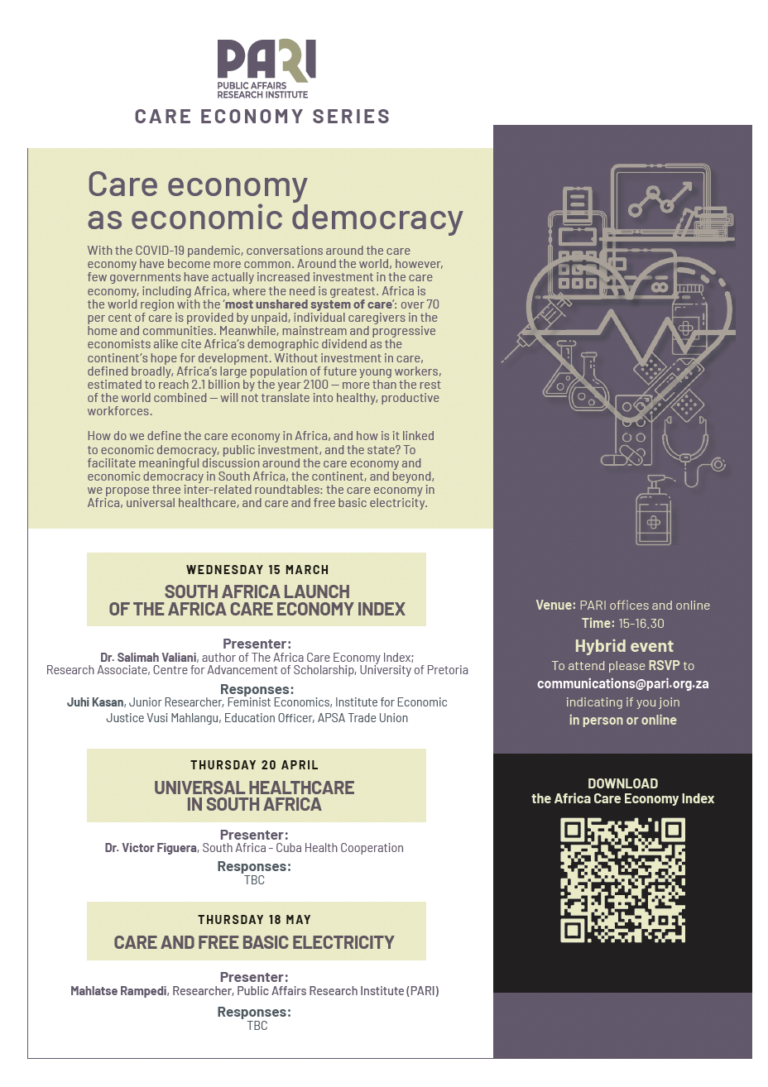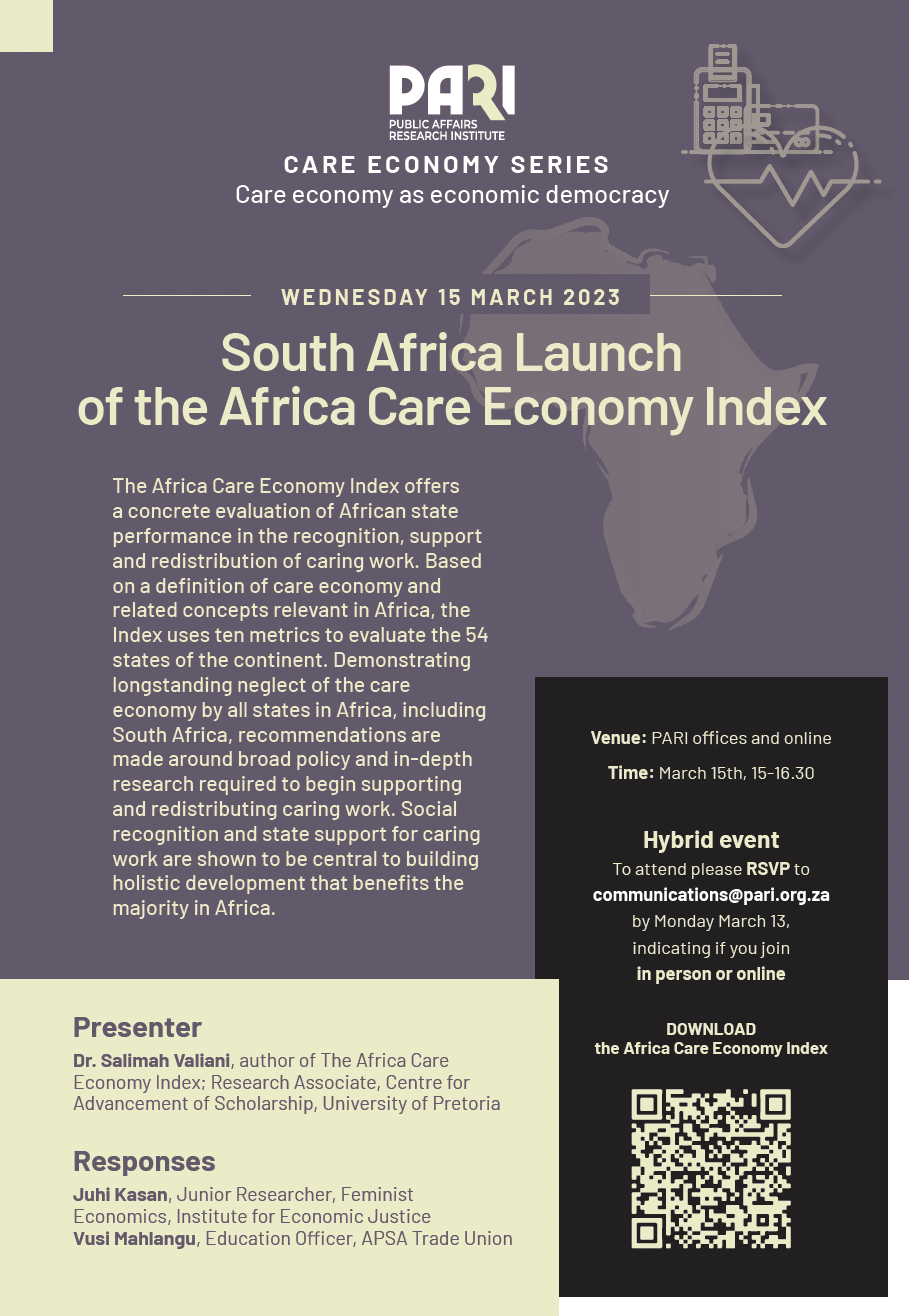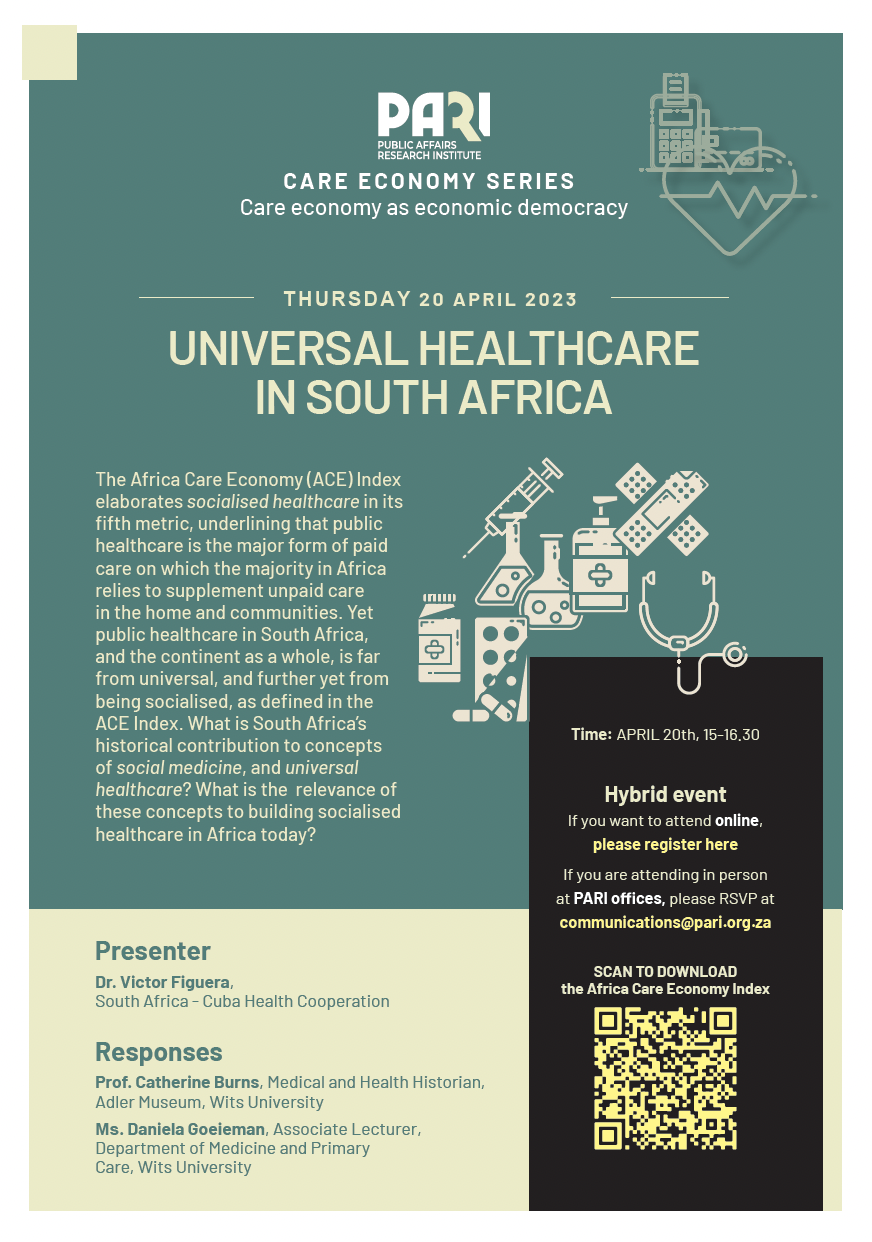Care economy as economic democracy
With the Covid-19 pandemic, conversations around the care economy have become more common. Around the world, however, few governments have actually increased investment in the care economy, including Africa, where the need is greatest. Africa is the world region with the ‘most unshared system of care’: over 70 per cent of care is provided by unpaid, individual caregivers in the home and communities. Meanwhile, mainstream and progressive economists alike cite Africa’s demographic dividend as the continent’s hope for development. Without investment in care, defined broadly, Africa’s large population of future young workers, estimated to reach 2.1 billion by the year 2100 — more than the rest of the world combined — will not translate into healthy, productive workforces.
How do we define the care economy in Africa, and how is it linked to economic democracy, public investment, and the state? To facilitate meaningful discussion around the care economy and economic democracy in South Africa, the continent, and beyond, we propose three inter-related roundtables: the care economy in Africa, universal healthcare, and care and free basic electricity.
The Care Economy series will feature three hybrid seminars. To attend in Johannesburg or online, please email communications@pari.org.za






